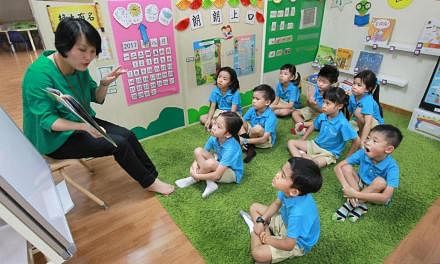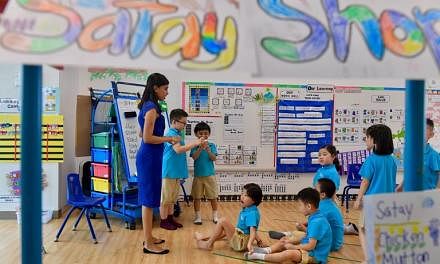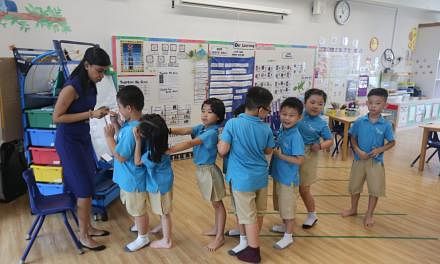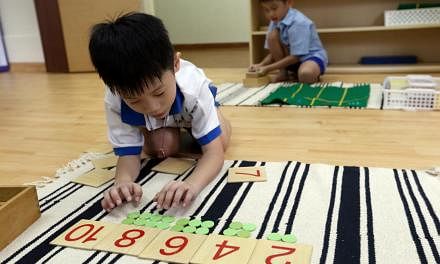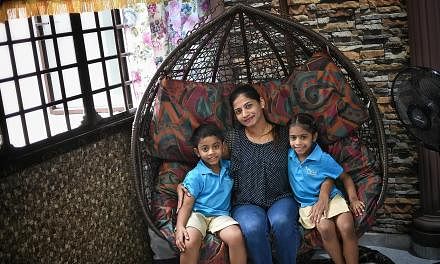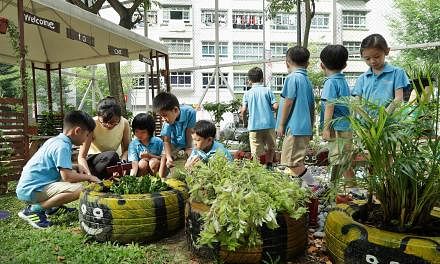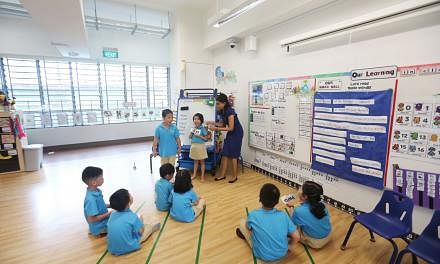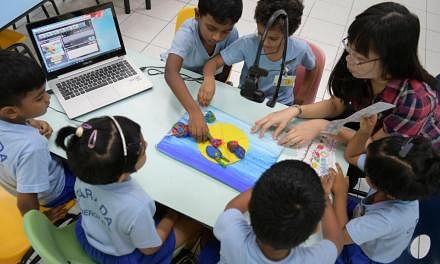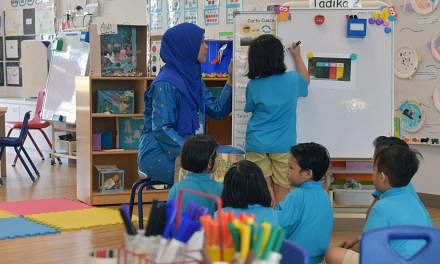There are already rumblings over the Ministry of Education's move to accord priority to its kindergarten pupils who want to enrol in the co-located primary schools.
Some of the concerns raised are valid, such as worries that the scheme will simply transfer the pressure from Primary 1 to kindergarten admission.
Some, like National University of Singapore economics lecturer Kelvin Seah, think this "trickle down of the pressure" is unlikely, unless the co-located primary schools are deemed by parents to be prestigious.
MOE has already said it will not be siting any kindergartens at government-aided primary schools. They are more likely to be paired with "neighbourhood schools" in estates where there is demand for pre-school places.
Also, those worrying about these primary schools creating a new elitist tier should keep in mind that one-third of the kindergarten places go to children from disadvantaged homes; and the rest have priority if they already have a sibling studying there and if they live within 500m, then within 1 km.
So those worrying about priority admission breeding a category of "heartland elite schools" are barking up the wrong tree.
Still, MOE needs to study the admission patterns carefully and tweak them if necessary.

BETTER TRANSITION TO PRIMARY SCHOOL
Yet, the ministry's reasons for according this priority are sound. MOE's expanding presence in the pre-school sector will benefit many children and, most importantly, those from poorer homes who have less access to good-quality early-years education.
MOE announced last week that children attending the ministry-run kindergartens will be given priority to register in the co-located primary schools, under Phase 2A2 of the Primary 1 registration scheme.
This puts them in the same category as children of alumni who have not joined as members of the alumni association, and ahead of children of parent volunteers and those with church or clan links.
Currently, about half the MOE kindergarten children register for a Primary 1 place at the co-located primary schools.
Parents have been given the assurance that there will be a minimum of 40 places for later admission phases 2B and 2C. MOE has also assured parents there will be sufficient school places on a regional basis so that no child will have to travel long distances to his or her primary school.
MOE's reasoning that its priority admission will allow its kindergarten pupils a smoother transition into Primary 1 is a sound one.
Transitioning to primary school from pre-school is a significant change in a young child's life. The change in routine can be overwhelming and lead to feelings of apprehension for both children and families. Hence, as child experts stress, a positive experience during this important transition is crucial - it can impact the child's social, emotional and educational outcomes through primary school.
But what will benefit children more is the exchange of information between their kindergarten teachers and teachers at the primary schools they join. With a better grasp of the children's learning curve at the kindergarten level, the Primary 1 teachers can calibrate their teaching and curriculum to ensure that the children will not be overwhelmed.
Currently, one or two months into the school year, I hear of parents complaining about their children suffering anxiety over long spelling lists and having to do difficult sums.
The sharing of information is especially valuable for children who have additional needs, be it social and emotional adjustments, or in learning.
At home, some children face a myriad mix of challenges, such as single parenthood, mental health issues, disabilities, substance abuse, abandonment and family violence. With the teachers and school counsellors working together, there can be quicker and more coordinated exchanges of information, and more comprehensive supervision of a child's needs.
MUSCLING INTO THE PRE-SCHOOL SECTOR
The other issue that has arisen is whether the Government is now muscling into the pre-school sector that has been dominated by private players and welfare organisations, including church groups.
Some have questioned if this is desirable.
Currently, there are 15 MOE-run kindergartens, with a dozen of them co-located in the same compound as neighbourhood primary schools.
MOE has already announced that, by 2023, it will have 50 kindergartens all located in neighbourhoods where there will be high demand for quality pre-schools.
And when the 50 kindergartens are up and running, MOE kindergartens will cater to about 20 per cent of the kindergarten cohort. That still leaves about 80 per cent of the cohort each year to the private sector.
Since MOE will not be setting up kindergartens in aided primary schools, it leaves that space free for church-run kindergartens, some of which stand out in terms of quality and their emphasis on values and character development.
And you also have your private kindergartens, like the ones run by EtonHouse, which provide a distinctive inquiry-based pedagogy and unique learning environments that parents are willing to pay high fees for.
Operators such as the PAP Community Foundation and NTUC First Campus, which run pre-schools, are moving to focus on early-years care and education for children - up to age four.
There are arguments to be made for MOE scaling up its involvement in the pre-school sector.
It will enable the ministry to influence and strengthen its support of the sector. Dr Seah from NUS says MOE can become a catalyst for raising teacher quality in the sector.
He notes the fact that pre-school teacher salaries have not kept pace with the times.
"Perhaps due to this, there were no strong incentives for extremely capable people to become pre-school teachers. MOE's wealth of resources and its ability to offer attractive salaries mean that it is in a good position to hire qualified teachers to improve the standard of pre-school education offered," he explains.
There is another important reason for MOE to stay in the sector. It can ensure that a high quality early-years education is accessible to all families, especially to children from disadvantaged homes who need it most.
That's why the policy to reserve at least one-third of the places for children from low-income homes is to be applauded.
There is a powerful body of research done by people like Nobel Prize-winning economist James Heckman that shows pre-school education, especially one that is of high quality, is the way to give children the very best start in life.
The evidence shows the benefits percolate across all domains of life. Based on two seminal studies that tracked children into adulthood - the Perry Pre-school Project in Michigan and Abecedarian experiment conducted in North Carolina - Professor Heckman has made a clear case for governments to invest in early childhood education.
Quality is key, though. For example, the Perry Pre-school Project involved providing high-quality pre-school education to a group of three-and four-year-olds living in poverty, and assessed to be at high risk of school failure.
The pupils were taught by certified public school teachers with at least a bachelor's degree. The average child-teacher ratio was 6:1 and the curriculum emphasised active learning. These children were tracked for decades after leaving pre-school. Not only did more of them go on to complete high school and enter college, they also had better jobs and earned higher salaries.
Mr Lee Poh Wah, chief executive of the Lien Foundation, which among other objectives seeks to foster exemplary childhood education, feels that MOE should set its aspirations higher for children in need by incorporating the KidStart programme in its kindergartens and developing inclusive education.
"It can weave a tighter circle of care around children-at-risk and their families, starting from kindergarten all the way to primary school. For instance, it can work closely with these parents to meet their needs more responsively and arm them with positive parenting skills. MOE can consider bringing in specialists, like social workers and therapists, to holistically look after their needs," he argues.
The evidence is clear - early education, especially one that is of high quality, pays off.
It has enduring benefits for children and the societies that invest in it.
Far from widening educational inequality, as some fear, MOE's move to expand its presence in the pre-school sector, and its decision to give priority admission to ease its pupils' transition to primary schools, should improve educational equity. It allows more low-income children access to quality pre-schools, with an assured place at good primary schools near their homes.

